Central Laboratory
YTU Central Laboratory works to produce scientific knowledge and develop opportunities for transformation into technology. It cooperates with universities abroad and establishes partnerships with research institutions on R&D issues and prepares a working environment that will gather the project studies carried out with the support of the European Union, TÜBİTAK, TÜBA, DPT and Yıldız Technical University Scientific Research Projects within the Central Laboratory. In addition, it creates a separate information and support unit on subjects such as patents, license agreements, technology transfer, increasing the project execution potential of YTU.
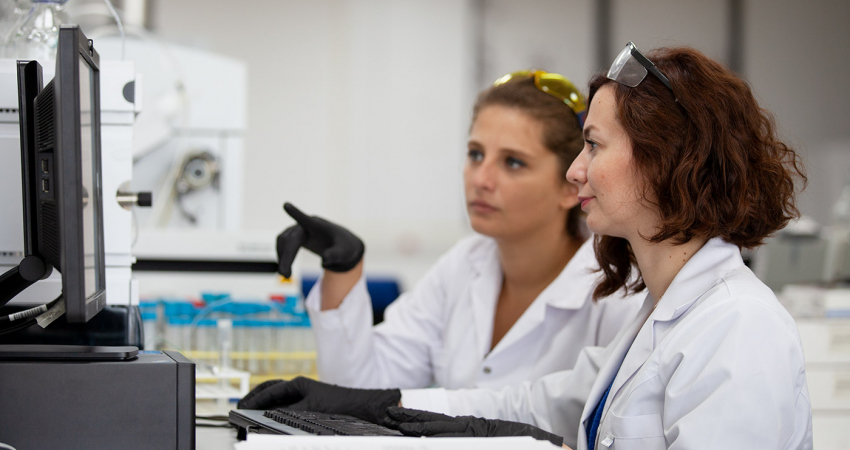
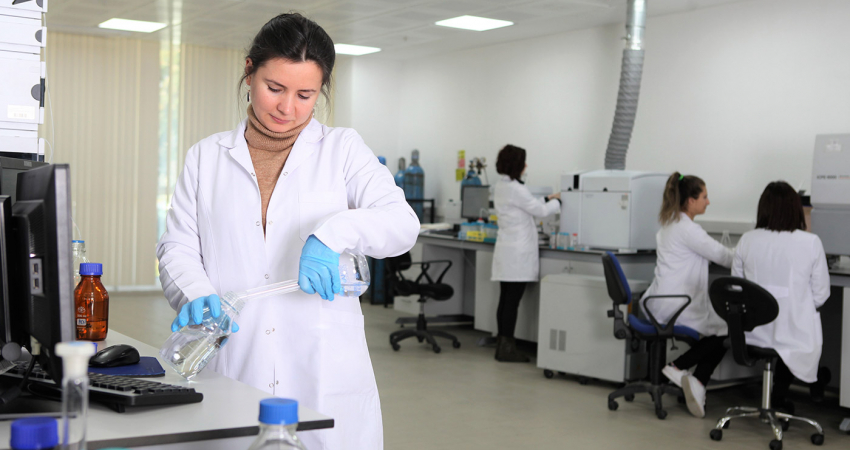
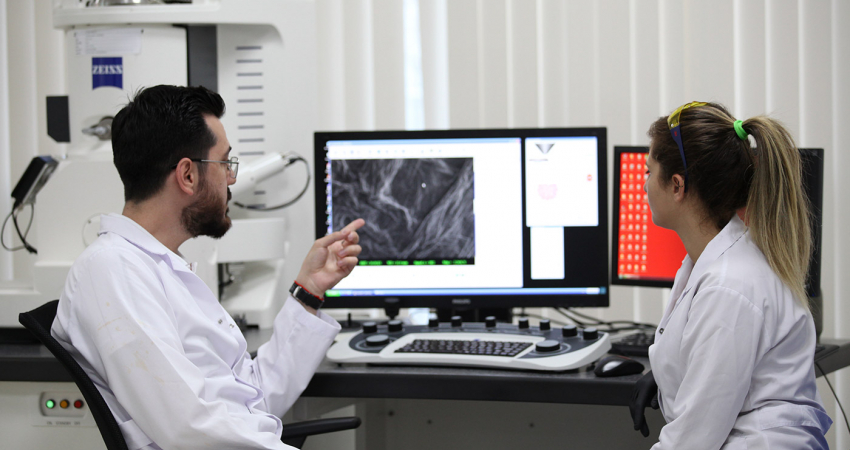
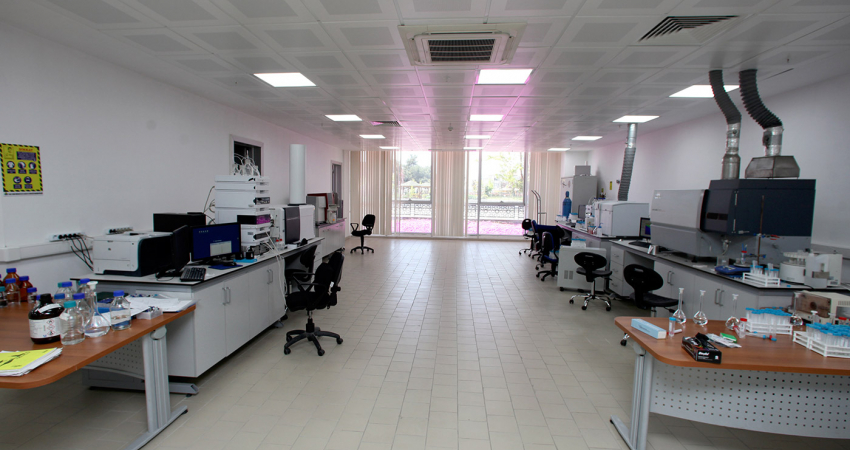
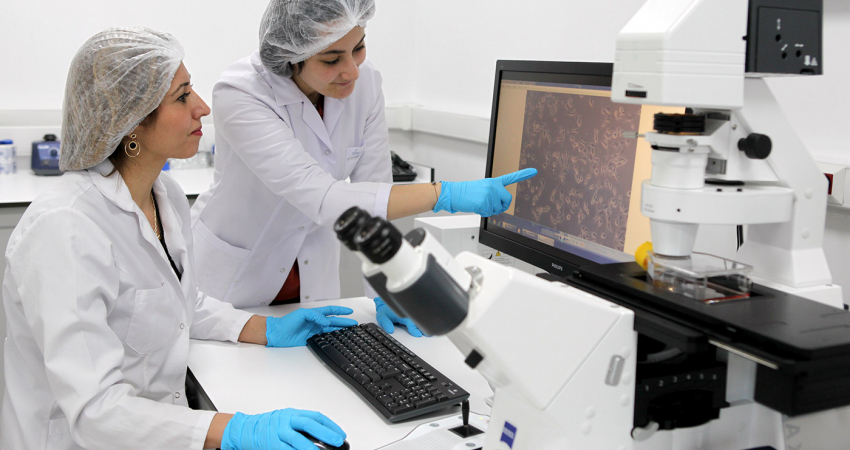
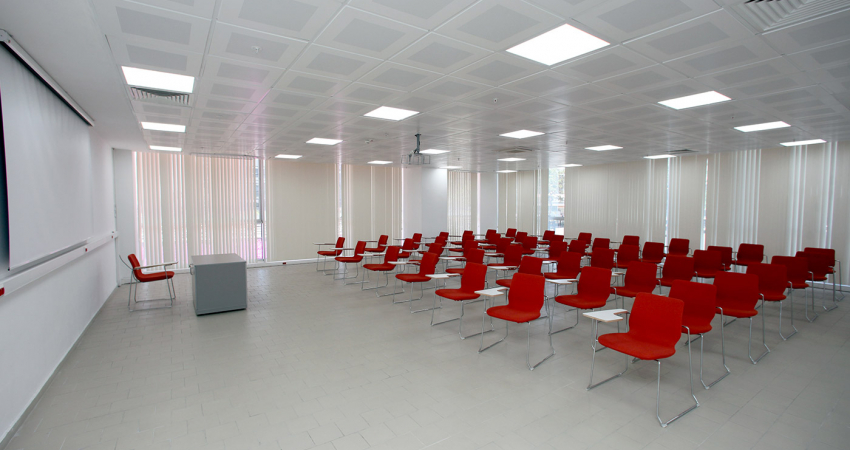
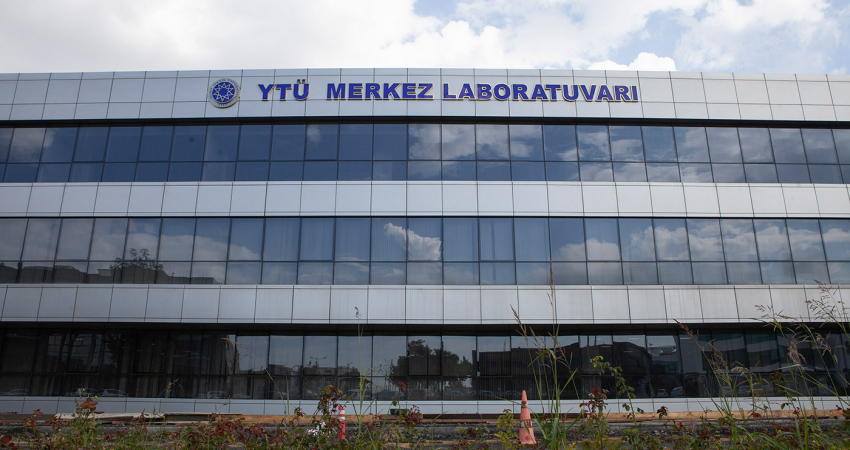
Electron Microscopy Laboratory
In our laboratory, which has a Zeiss EVO LS 10 environmental electron microscope, the processes of examining the microstructure of a wide spectrum of powder or bulk materials or biological samples, which can be conductive or insulating, are carried out. With the Energy dispersive X-ray detector integrated into the electron microscope, information about the chemical structure of the materials can be obtained.
X-Ray Diffraction Laboratory
X—Ray Diffraction Laboratory has PANalytical brand and X'Pert PRO model polycrystalline XRD, Rigaku brand XtaLAB mini model single crystal XRD and PANalytical brand Minipal 4 model Energy Dispersive X-Ray Fluorescence (XRF) Spectrometer. The chemical composition and crystal structure of your solid, liquid, powder and thin film materials are analyzed in a NON-DESTRUCTIVE way.
Thermal Analysis Laboratory
The Thermal Analysis Laboratory includes DSC, TG/DTA and DMA devices. With DSC and TG/DTA devices, endothermic and exothermic reactions occurring with heat are observed in the material. In the DMA device, the force applied to the material and the mechanical changes occurring in the material are determined.
Spectroscopy Laboratory
In this laboratory, UV spectra of colored inorganic compounds and organic compounds with chromophore groups can be obtained with the UV-Vis spectrophotometer. With the FT-IR device, the chemical bonds of liquid or solid organic compounds and the functional groups they contain can be determined.
Mechanical Analysis Laboratory
Determining the mechanical strength of materials is very important for material selection and engineering design. The mechanical strength and properties of the samples are determined by tensile, compression, three-point bending and fatigue analyzes performed with the devices (INSTRON 5982, INSTRON 8872) in the Mechanical Test Laboratory.
Gas Chromatography Laboratory
In the gas chromatography laboratory, the determination of volatile organic compounds is carried out qualitatively and quantitatively with different device systems.
The Mass Spectroscopy Laboratory
The Mass Spectroscopy Laboratory is equipped with Tandem Mass Spectrometry system which is a high resolution combined with Liquid chromatography - Quadrupole Time of Flight . In this laboratory, qualitative and quantitative determination of non-volatile organic compounds in environmental, biological, pharmaceutical, food and cosmetic samples can be analyzed. This laboratory is generally used for pesticide determinations, residue analyses, purity analyses, drug determinations, clinical analyses, biomarker studies, metabolomic studies, peptide sequencing.
Cell Culture Laboratory
Cell culture is the process of growing cells isolated from human or animal tissue in an incubator under controlled conditions to reach sufficient numbers for testing. Cells are grown in special culture dishes in a medium containing special media and growth factors.
In our cell culture laboratory, mammalian cells are cultured, multiplied, passaged and frozen in an in-vitro environment by providing optimum conditions. In addition to routine procedures, cytotoxicity analyzes are carried out by using the MTT method in line with the analysis requests. Our cell culture laboratory also has an Inverted Fluorescent Microscope for visualization of cells stained with fluorescent dyes.
Particle Characterization Laboratory
Surface properties such as specific surface area, adsorption capacity and pore size are determined by using the physical adsorption method to the materials in our laboratory. Our laboratary is equipped with one Micromeritics ASAP2020 ,Quantachrome Quadrasorp SI and two gas adsorption devices.
Surface Characterization Laboratory
This laboratory has Ellipsometer, Optical Profilometer, Mechanical Profilometer, Material Microscope and AFM devices. The ellipsometer gives information about the surface by measuring the change of polarization of light reflects or transmits from a material structure. The mechanical profilometer is a surface profile measuring device using the needle contact technique. In the Optical Profilometer, the desired region on the sample is displayed in a computer-controlled manner without any shifting with the light. The material microscope can magnify material up to 270 times without the loss of resolution. The AFM device determines the surface roughness and step height of the sample with and without contact.
Finance Lab
Two Finance Laboratories within the Faculty of Economics and Administrative Sciences offer serves for our students and lecturers. Laboratory experiences in Finance Lab help our students to apply their theoretical knowledge into practice and contribute to university-industry cooperation. Finance Laboratories form a basis for scientific and technological innovative projects and ideas that the private sector and the public will need in the field of finance and economy
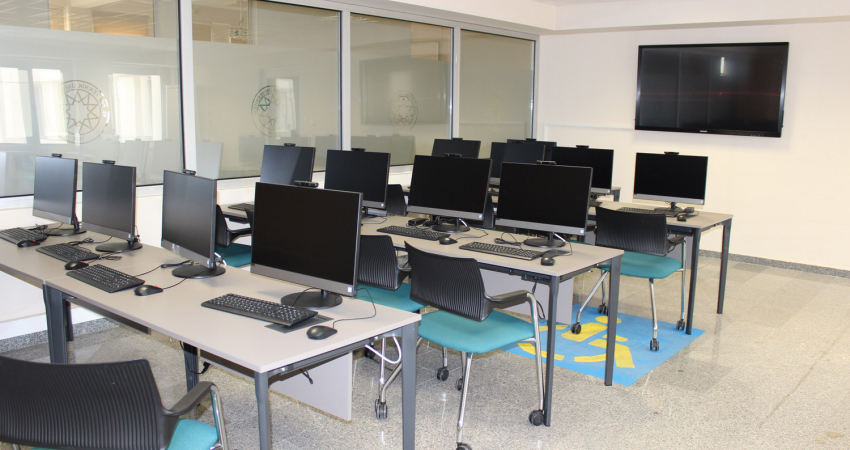
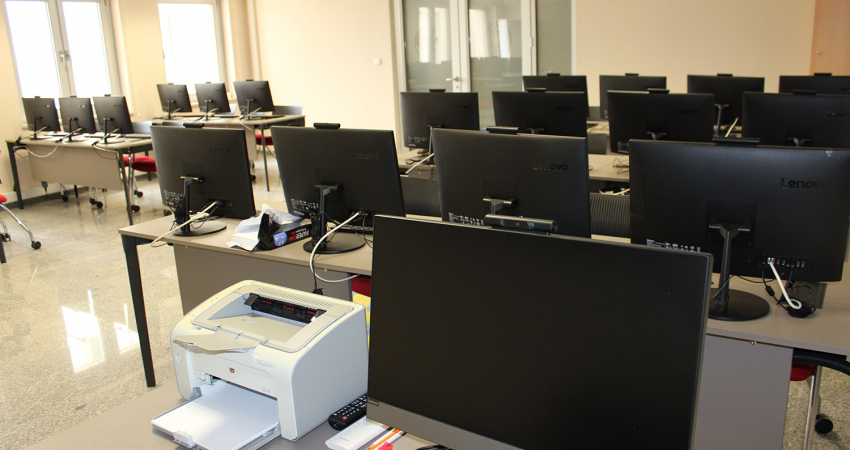
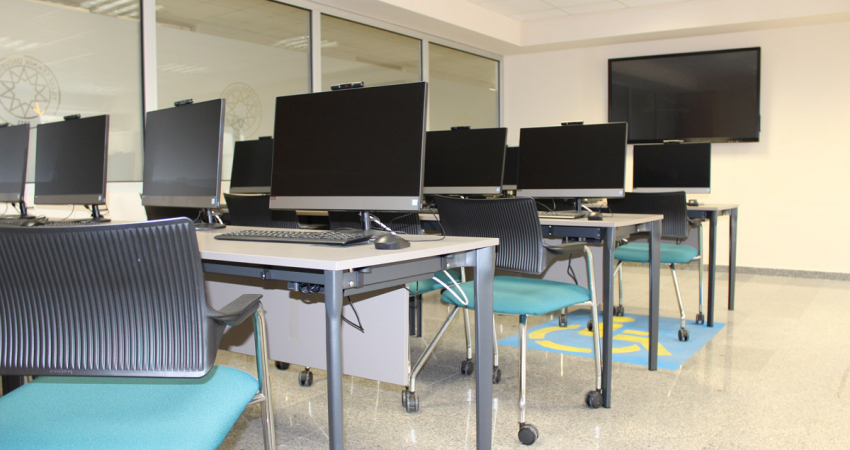
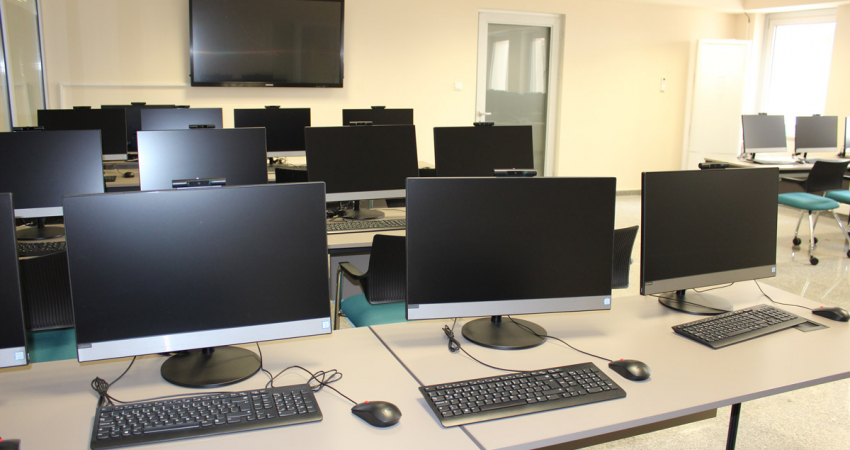
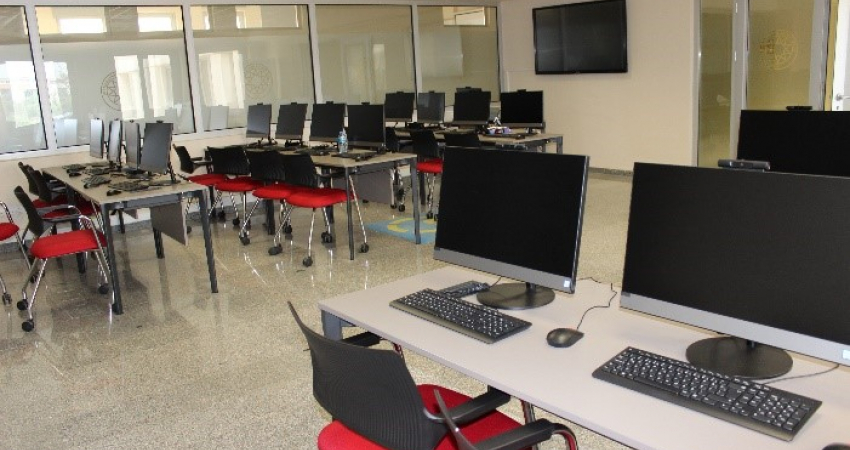
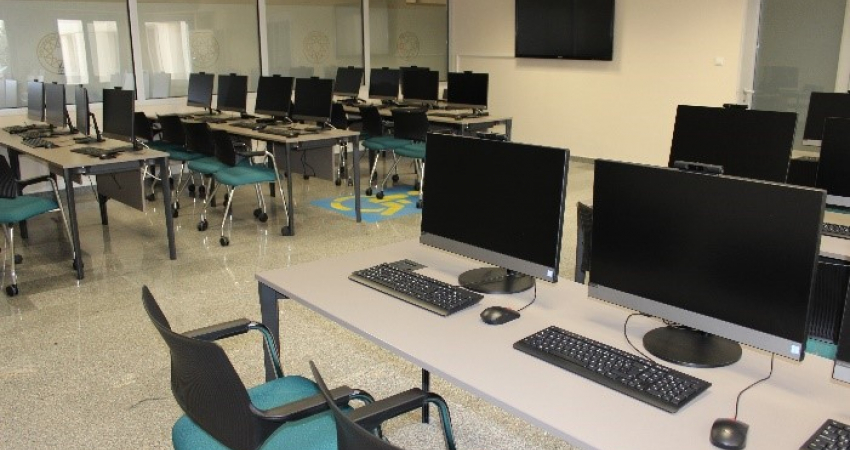
Our students will gain skills in the analysis and interpretation of real data and macroeconomic developments, as well as in company valuation and purchase of securities from financial markets thanks to the finance laboratories established with the support of MGA software and Finnet Electronic Publishing Companies. Our students will have the opportunity to analyze and evaluate the data on funds such as stocks, warrants, debt instruments, derivatives (forward contracts, options, etc.) and pension and mutual funds traded on the stock exchanges operating in the Turkish Capital Markets, and the first transaction of companies that issue financial assets or whose financial assets are traded in the markets. financial statement data, news and notifications that may affect their economic values, and macroeconomic data published by the CBRT.